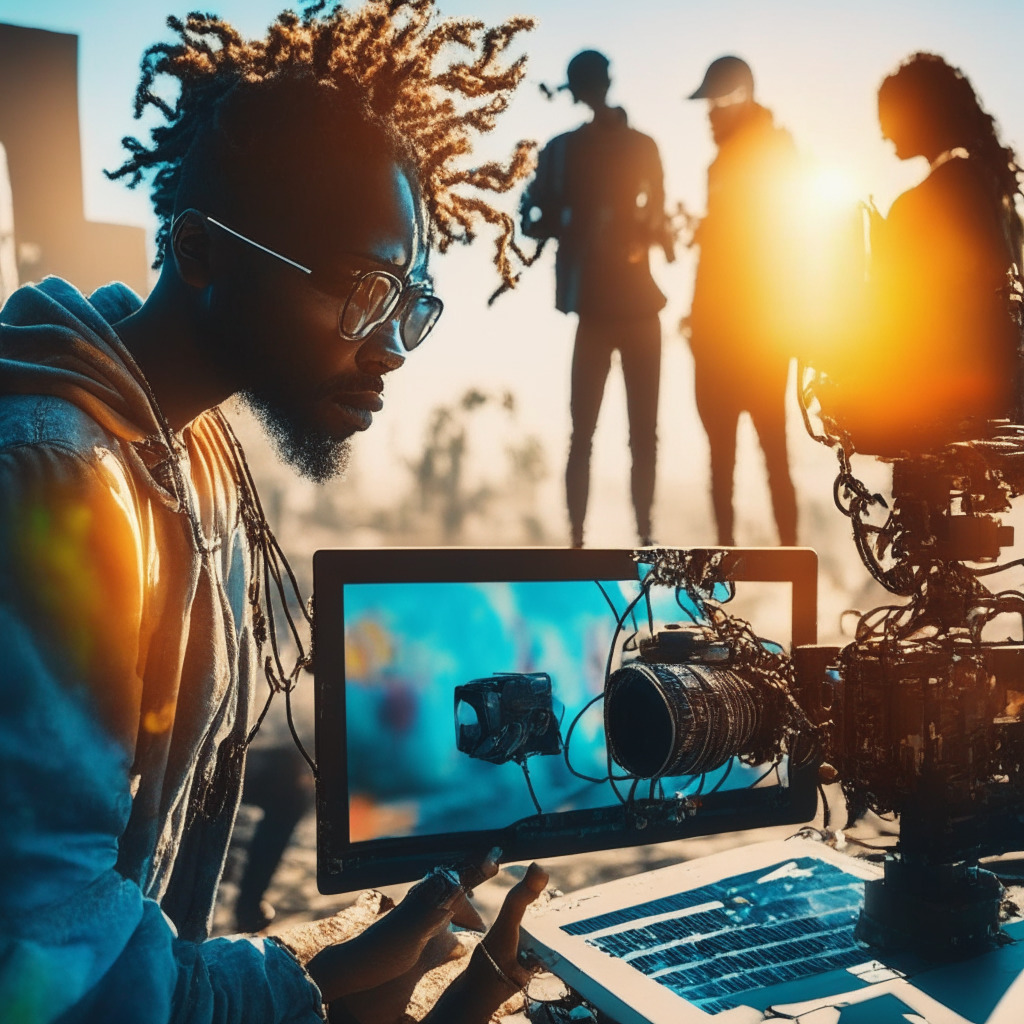In recent times, the emergence of blockchain technology has been transforming various industries, and the world of cinema is no exception. Filmmakers, especially independent creators, are starting to embrace blockchain’s potential to empower them and disrupt the traditional dynamics of the Hollywood-centric film industry.
Award-winning filmmaker Jordan Bayne has expressed her belief in blockchain’s ability to offer creators more power in the filmmaking process. As a pioneer of the Film3 movement and founder of the Film Squad media collective, Bayne has been advocating for the integration of blockchain technology in various aspects of independent filmmaking. The Film Squad showcases how this innovative technology can be useful for indie film creators, from financing and distribution to ownership of intellectual property.
“You can truly own your IP through the whole thing,” said Bayne, stressing the advantages that Web3 brings to the art of filmmaking. “Your community can be involved through every step, and you don’t necessarily need the studios.” Additionally, Web3 technology encourages a sense of acceptance and inclusion among artists, which has been a struggle for many marginalized creators in conventional film industry components.
Furthermore, the Film Squad’s core principle of uplifting and showcasing other artists is incredibly appealing. It helps bridge the gap between like-minded individuals, enabling them to collaborate and efficiently connect. For Bayne, the formation of the Squad came partly as a response to the challenges she faced as a female filmmaker and member of the LGBTQIA community. Consequently, the Squad prioritizes assisting marginalized creators, such as Black filmmakers and people of color.
The adoption of blockchain technology in the film industry aligns with Bayne’s goal of narrating stories that have been left untold. By focusing on characters and stories that often remain in the shadows, she seeks to amplify their voices and bring them to the forefront. As Bayne pointed out, “Each community wants to see their voices on screen.”
In this era of technological innovation, the incorporation of blockchain and Web3 technology offers indie filmmakers an unprecedented opportunity to empower themselves, improve inclusiveness, and redefine the way films are financed, distributed, and owned. The decentralization of the industry through blockchain breaks the monopolistic grip of traditional studios, giving more space and freedom to creators who previously encountered countless barriers to entry and success.
Although blockchain technology is still in its early stages, its potential impact on the film industry appears promising. As more creators harness its power, it’s clear that transformative change is on the horizon for filmmakers seeking to control their narratives and tell the stories they – and their communities – are passionate about. The future of cinema is undoubtedly bright, and blockchain technology might hold the key to unlock it further.
Source: Decrypt



